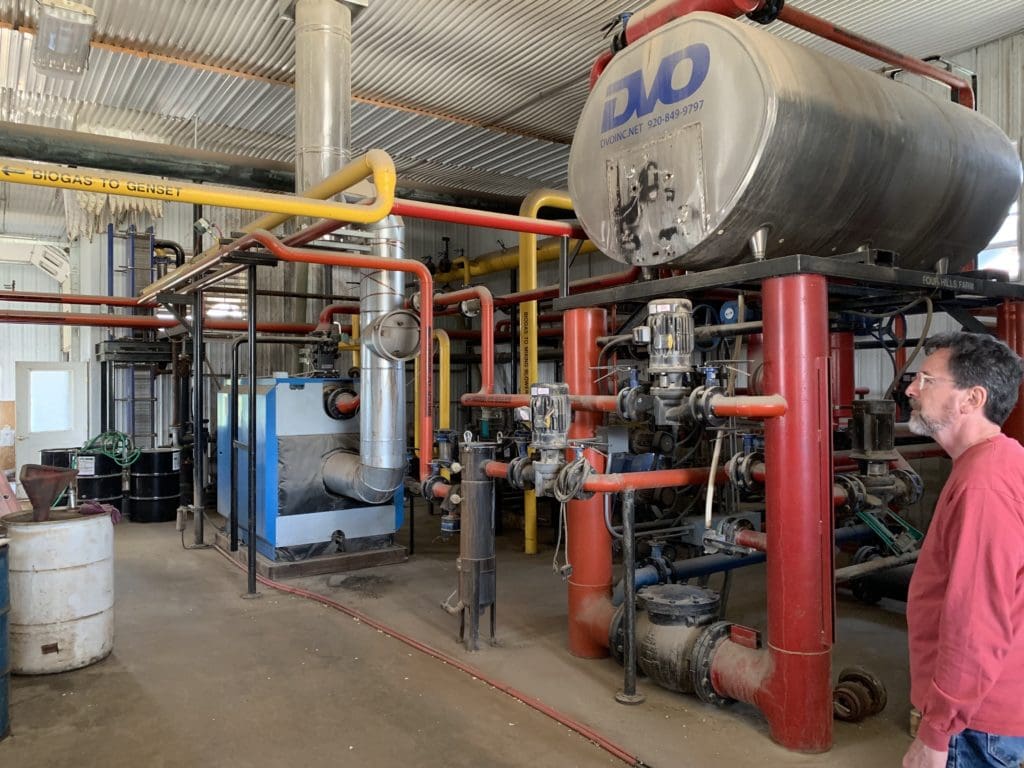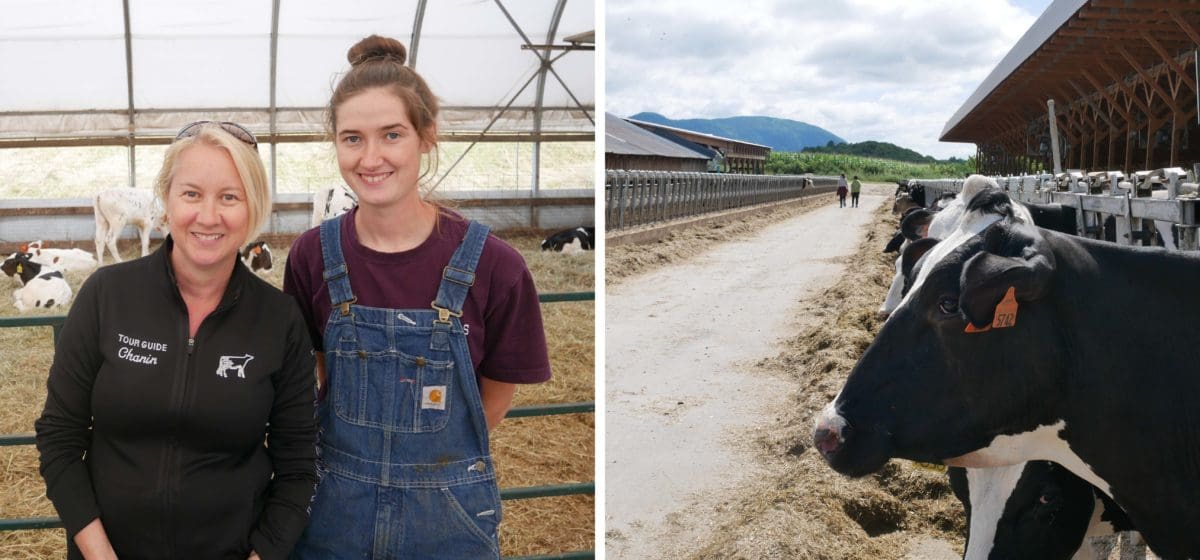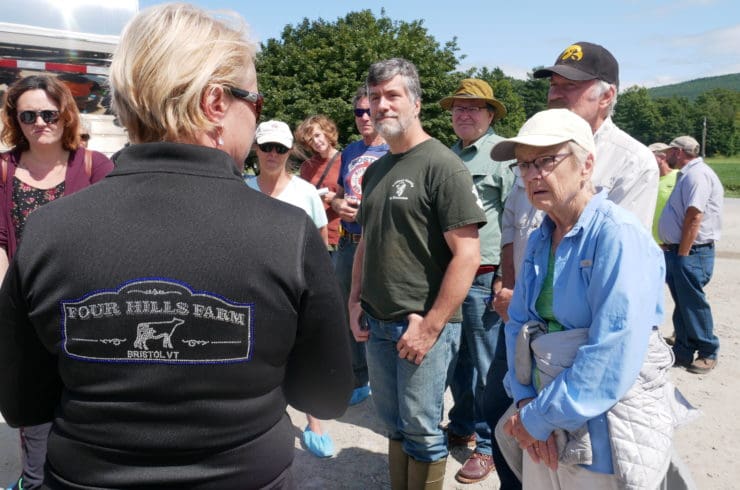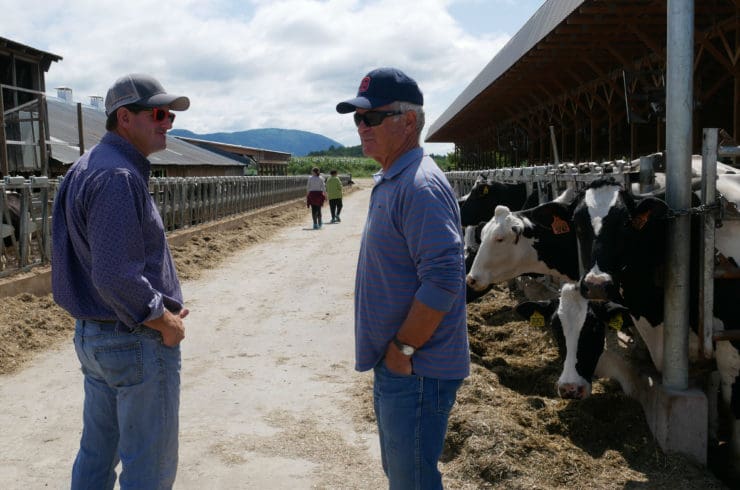Four Hills Farm gets its name from the four Hill siblings – Ron, Brian, Joanne and Kevin – who purchased the family farm from their parents, Jeanette and Robert. The farm has been in operation for over 40 years and the third generation of Hills play an active role on the farm now too.
The family cares for 2,300 milking cows and over 5,700 acres of land in Addison County. Their cows are milked three times a day and produce more than 20,000 gallons of milk per day. The average American drinks approximately 18 gallons of milk per year – that means Four Hills Farm feeds over 400,000 people per year by producing over 7 million gallons of milk annually.

A young visitor enjoys chocolate milk during a visit to Four Hills Farm.
A big priority for the Hills is to ensure the food they produce is done so responsibly with the environment in mind. Since 2012, the Hills have been contributing to sustainable agriculture by generating twice the electricity needed to run the farm through their enrollment in Green Mountain Power’s Cow Power program. They installed an anaerobic digester system which converts cow manure into clean, renewable electricity. The farm powers approximately 400 homes in their local community annually with their excess energy. In the process the cow manure is separated into sterile plant fibers and liquid fertilizer. The plant fibers are recycled as clean, comfortable bedding for the cows. This reduces waste and the need to purchase bedding. The fertilizer is recycled to be used to grow the farm’s crops

The methane digester at the Four Hills Farm.
“As we know more, we’re changing our practices because we don’t want to injure the environment. We haven’t always done it right, but when we find out something is wrong, we change it,” said Chanin to a farm tour group she hosted in 2019.
The farm has also invested in technology to improve the quality of the soil and water on their land. Cover crops are planted after the corn is harvested to enrich the soil and hold more water through the winter and spring. This practice reduces run-off and soil erosion. GPS-guided tractors allow the farm to plant their crops with precision as well, and to calculate the exact amount of nutrients and fertilizers needed in specific areas on the fields.
The crops grown on the farm are primarily hay and corn for the cows to eat. The cow’s diets are formulated by a professional dairy nutritionist to contain additional vitamins and nutrients they require. They also eat leftovers from human food and beverage processing, such as leftover brewers grains. This makes cows the ultimate recyclers – dairy cows in the U.S. consume 130 million tons of food leftovers and convert them into cheese, yogurt, and all other dairy products.
“Like every other part of our lives, farming has become very technologically oriented,” says Chanin. “We like to say we farm for the third generation. We want our kids to be able to come back here. To do that sustainably, they are going to need to know a whole lot more than we did.”



